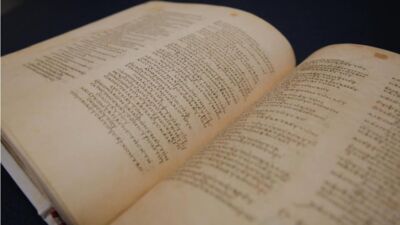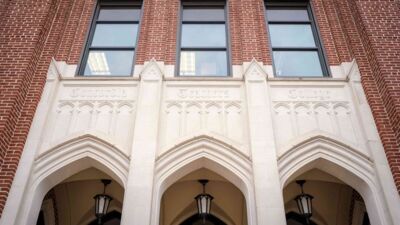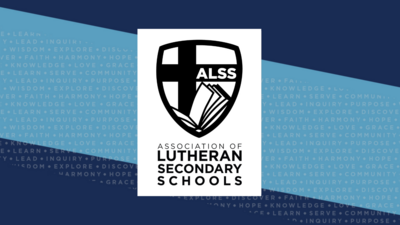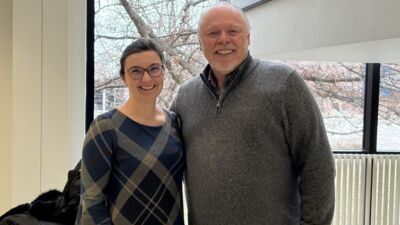Dr. John Genter presents Concordia Nebraska’s collection of historically significant Biblical manuscripts to faculty and staff attendees

On March 20, Concordia Nebraska Assistant Professor of Theology Dr. John Genter led faculty and staff members through a presentation of the university’s emerging collection of historically significant Bibles and Biblical manuscripts.
Concordia Nebraska is in the early stages of building a collection of these Bibles and manuscripts; Genter’s presentation was open to any interested faculty and staff members and introduced the audience to new acquisitions, providing an overview of the project.
According to Genter, the project’s new acquisitions fall into three categories: ancient Bibles, Luther Bibles and early printed editions. The “pride of the collection,” he said, is a high-quality reproduction of Codex Vaticanus, the oldest extant Bible in the world.
“This limited-edition facsimile of Codex Vaticanus...replicates everything from the words on the page to the holes in the parchment and the precise shape of each individual page,” said Genter. “Codex Vaticanus is an important witness to the text of the New Testament and the Septuagint. It is also the earliest example we have of a single codex designed to contain every Biblical book.”
I hope this collection sends a clear message to visitors strolling through Link Library in future years: the Bible is important to us; we are a community built on the Word of God.
The earliest printed versions of the Bible come from the years following the 15th-century invention of the printing press. Concordia Nebraska has acquired several reproductions from books like Erasmus’s Novum Instrumentum omne (the first published text of the printed Greek New Testament), the Complutensian Polyglot (containing the first printed edition of the Greek New Testament), Robert Estienne’s 1550 and 1551 editions of the printed Greek New Testament and the 1611 King James Bible.
The collection will also feature a 1534 Luther Bible facsimile that will be open to browsing by the public when the Bible display opens.
After hearing about plans for the future of the manuscript collection project, faculty and staff had the chance to browse the collection and ask questions about the collection’s Bibles. During that time, Genter said, the group discussed the origins of chapter and verse divisions, English translations, various contributions of Martin Luther’s and the accessibility of the Bible throughout history.
“I hope people come away with valuable knowledge but also a deeper appreciation of how blessed we are to have such ready access to the Bible today,” he said.
Genter has extensive experience in working with Biblical manuscripts and translations. His doctoral coursework, he said, included the transcription and collation of P46, a third-century collection of the Pauline epistles.
“I first began working with Bible manuscripts during my Ph.D. work,” Genter said. “The whole experience was very exciting...I [later] began making use of the university’s facsimile collection for my own research and for my undergraduate classes.”
Genter also gained further knowledge about Biblical manuscripts after receiving a fellowship that brought him to Oxford University, where he browsed local collections, practiced translating from ancient manuscripts and attended lectures on the transmission and translation of the Bible. Now, at Concordia Nebraska, he hopes to build a collection that people want to come and see, as well as one that offers unique opportunities for university students.
“Not many undergraduates have the opportunity to translate the Bible directly from ancient manuscripts,” he said. “At Concordia University, Nebraska, you can do just that. Our Greek students have already started reading from Codex Vaticanus.”
He acknowledged plans to acquire Latin and Hebrew facsimiles in future years for the same use and added that he hopes items from the university’s manuscript collection can be taken on the road for talks at churches and schools.
“I hope this collection sends a clear message to visitors strolling through Link Library in future years,” Genter said. “The Bible is important to us; we are a community built on the Word of God.”
The theology department at Concordia University, Nebraska offers its students countless opportunities to dig deeper into God’s Word to learn about themselves, the world and how to spread the Gospel to all nations. Learn more about Concordia’s theology program here.
Interested in the theology program at Concordia University, Nebraska?
Related Stories


